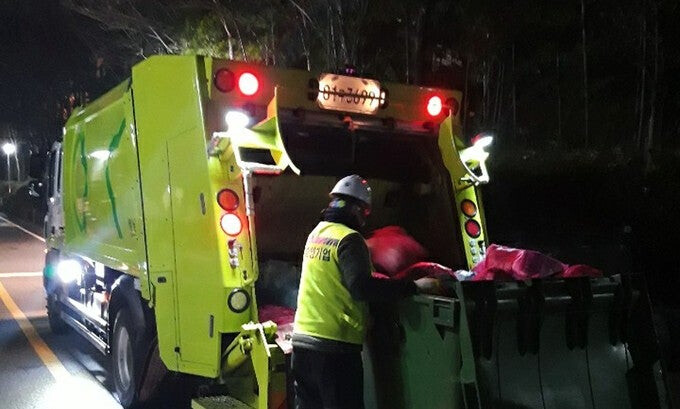
The high salaries of sanitation workers are once again a hot topic online. Recently, a pay stub of an 11-year veteran sanitation worker was revealed in an online community, showing a high amount of 6.53 million won before taxes and 5.4 million won after taxes, drawing significant public attention. However, beneath this figure lies a shocking 92 hours of grueling overtime in a single month.
The Meaning of the Revealed Pay Stub
Disclosed on online communities starting July 12, this pay stub for June 2025 showed sanitation worker Mr. A's total monthly salary reached 6,529,930 won. A detailed breakdown revealed a basic salary of 2,507,970 won, in addition to various allowances such as 160,000 won for family allowance, 1,303,980 won for year-end allowance, 300,000 won for driving allowance, and 100,000 won for pollution allowance.
Particularly noteworthy was the additional allowance of 2,125,980 won generated from night and holiday shifts. It was revealed that Mr. A worked 2 days of holidays, 92 hours of night shifts, and 19 hours of overtime. This detail sparks both surprise at the high salary and, simultaneously, regret and concern over the excessive overtime hours.
The Hidden Truth Behind the High Salary
The perception that sanitation workers earn high salaries has long existed. In particular, their stability, comparable to civil servants, and relatively high starting salaries have made it one of the most competitive professions for employment. Indeed, as of 2022, the starting annual salary for sanitation workers is known to be 50-55 million won (before tax) in Seoul, 40-45 million won in the six major metropolitan cities, and 32-35 million won in small and medium-sized cities. This is by no means low compared to the starting salaries of new employees in general companies.
However, the recent disclosure of this pay stub does not simply highlight the high salary, but starkly reveals the harsh working conditions hidden beneath it. 92 hours of monthly overtime is an unimaginable level of labor intensity at a time when the 52-hour workweek is in effect. This means approximately 23 hours of additional work per week, practically indicating that they are working overtime almost every day, including weekends. Even considering the nature of sanitation work, which often involves working through the night and starting early in the morning, 92 hours of overtime inevitably leads to extreme physical and mental fatigue.
Need for Changes in Social Perception and Improvement in Treatment
Online, various reactions have poured in, such as "It seems they earn what they work for," "I thought the salary was high, but I was shocked to see 92 hours of overtime," "Thanks to people like them, we live comfortably," and "Sanitation workers deserve even better treatment than now." This shows that beyond simple envy of high salaries, there's a growing change in perception regarding their contribution to our society.
Sanitation workers perform crucial duties that maintain urban cleanliness and are directly related to citizens' health. A clean and pleasant urban environment would be impossible without their efforts. However, their work is still dangerous, arduous, and often does not receive sufficient social respect. They are constantly exposed to the risk of safety accidents, such as being hit by traffic while collecting trash on narrow roads or sustaining injuries from lifting heavy trash bags. Furthermore, night work can disrupt sleep patterns and cause chronic fatigue, severely impacting health.
The recent disclosure of this pay stub should serve as an opportunity to reignite social discussion on improving the treatment of sanitation workers. Beyond simple wage increases, urgent improvements in actual working conditions are needed, including reduced working hours, expanded safety equipment, and improved resting facilities. It is our society's responsibility to provide fair compensation for their hard work and create an environment where they can work healthily and safely. Creating an environment where sanitation workers can work with pride would be the greatest expression of gratitude we can offer them.
[Copyright (c) Global Economic Times. All Rights Reserved.]






























